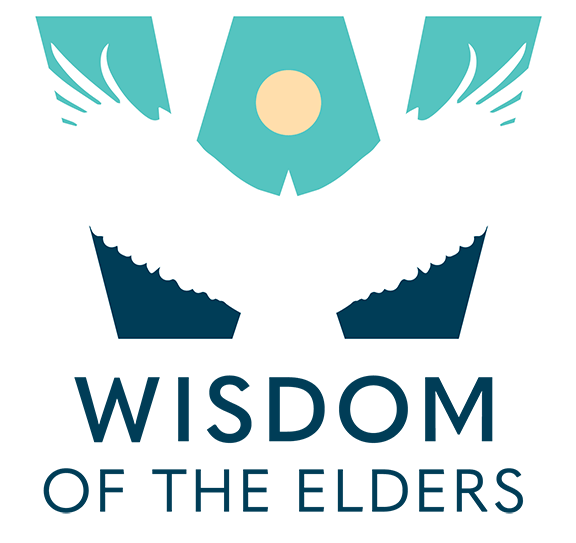Fred Hill
with Nico Wind
[audio:https://www.wisdomoftheelders.org/prog305/mp3/305__tr.mp3]Arlie Neskahi:
One of the great joys of my life has been getting to know other singers. In today’s Tribal Rhythms you will meet Fred Hill, a singing brother of mine whose knowledge of the traditional songs of the Columbia River Tribes amazes me. He’s an enrolled member of the Umatilla Tribes, and not only is Fred a storehouse of his cultural heritage, but he is also a composer of many beautiful songs himself. And, once you get him started telling jokes, you better be ready to have a sore gut from laughing so hard the next day. Nico Wind has more.
Nico Wind:
Singer, emcee, language consultant, interpretor, Fred Hill is richly talented. Born on the Umatilla Reservation in 1956, his parents died when he was an infant. So, he was raised by his grandmother and his uncle, the late Annie Joe and Charlie Mckay.
Fred Hill:
We always sat at the table to eat. And that’s where we learned a lot of our language, the foods, the different utensils. And today I am very grateful to my Grandmother, who is my “kut l A” and my uncle for teaching me the language.
Wind:
The values Fred received from his elders grew into a great enthusiasm for his language and culture. Today he teaches at a charter school and often acts as a family spokesman at memorials and name-givings.
Hill:
I know some of the youngers look at me as an elder and I am still a young man.
Wind:
Fred learned about singing from his uncle and other elders who came to visit. He recalls one teacher he really admired.
Hill:
His name was Isaac Tom. And he was in a wheel chair in his latter days in life but he sure loved to sing. That’s one thing that we don’t see anymore, is real elderly men that still sing. But that is what I hope to achieve in my lifetime, is to continue to sing where the literally have to kick me off the drum. (laughs)
I remember hearing this song as a young boy from some of the elder singers from Yakima. The style of hitting that they used is something like a bygone era. At one time when they would hit, when they would come to the middle part of the song, they would all hit the drum hard together, it was automatic for them and that is how you were able to distinguish circle dance songs. Kapipit, what we call.
Wind:
The circle dance was once danced only by the women. But today everyone joins in, even in their street clothes, often dancing in a circle around the drummers.
Hill:
This is an old kapipit song I created. I do dedicate this to the Wisdom of the Elders. Eh!
Wind:
Today the owl dance is one of the most popular intertribal powwow dances for couples.
The partners hold each other arm in arm, stepping around the circle. Then, on a cue from the drum, they make a slow, graceful turn.
Along with the joyful social dances, the war dance holds an honored place. According to Fred, the war dance was borrowed recently by the Umatilla — from their enemies.
Hill:
We used to go to war with other tribes around here, that were always tormenting our people, There some areas here where the stories go where they would really fight and kill them all off except one and they would send that one back. You tell your people this is what is going to happen if you keep doing this, keep coming here trying to steal our women and our children.
But as time went on and the fighting ceased, when the railroad came through, that these people wanted to come back and have a truce. And as they did come back they also shared their dancing and singing. And so from just a little bit I heard the Shoshone people are the ones that showed us the dance. The wars have ceased, the tribal wars, but yet the war still remains in the dance arena.
Hill:
That’s an owl dance that I had created. It is Nez Perce language “TATS-ka-LA-wit” is “good evening.” “EE-neem-him YU-ma” is “my people.” “Ta-LAU-tee-la-ma” “And my friends” (um) “WAT’-AITS-tsa, WAT’-AITS-tsa” is speaking of “Are you having a good time? Are you having a good time?” And the beat was faster and the reason I sing it that ways is because when you set a tempo for a song, such as a song like that, you want the people to dance peppy.
Wind:
Something magical happens at the intersection of the music, the dancing, and the words. It all comes together like a beaded belt with an intricate design and a colorful story.
Hill:
As long as we dance, we shall live. A s long as we sing we shall live too. When you get hit by a song, when you get hit by the vibration of that drum that makes you move, that’s when it gives life. That’s when as I as a singer, when I see the dancers really dancing, that’s when I know that I am really giving life, you know, the good Indian Way.
Wind:
For Wisdom of the Elders, I’m Nico Wind.

